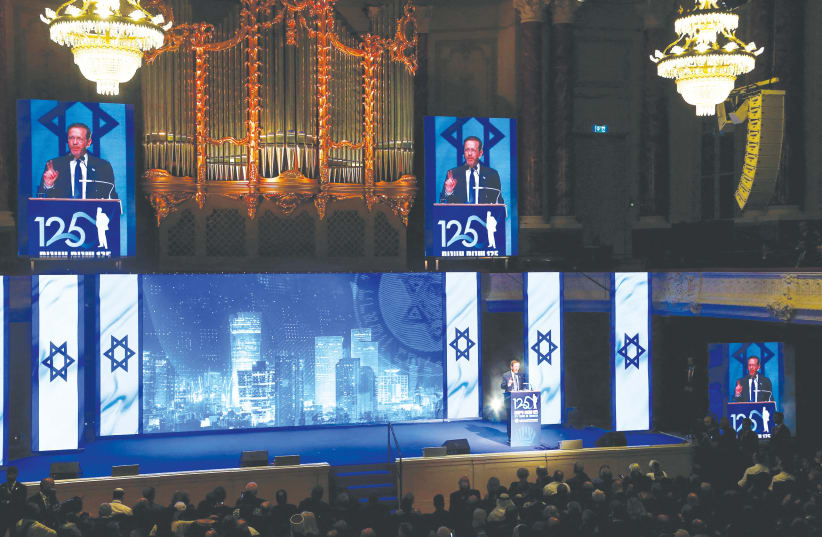As Israel navigates one of its longest wars, politics remains undeterred, especially within the country’s national institutions – key arenas for power, money, and prestigious appointments. The upcoming elections for the Zionist Congress, which includes representatives from political parties and major Jewish and Zionist organizations from Israel and the Diaspora, will determine critical roles in four national bodies: Keren Kayemeth LeIsrael-Jewish National (KKL-JNF), The Jewish Agency for Israel, the World Zionist Organization (WZO), and United Israel Appeal.
While the elections are slated for next year, the political parties, particularly Likud, are not waiting. Culture and Sports Minister Miki Zohar and MK David Bitan, backed by Tourism Minister Haim Katz, are negotiating pre-election agreements with key Congress factions to secure their positions ahead of time. These negotiations, which also involve support from Prime Minister Benjamin Netanyahu, aim to solidify the Likud’s control of these influential bodies.
Zohar's moves to secure power
Zohar and Bitan have already signed deals with more than eight factions, including Yisrael Beytenu, National Unity, Labor, Meretz, and World Mizrachi. These factions represent a diverse array of Jewish organizations in Israel and abroad. Through these agreements, Likud is poised to tighten its grip on KKL-JNF and other national bodies while simultaneously working to regain control of World Likud, which has been under the influence of Danny Danon and his ally WZO chairman Yaakov Hagoel for over 15 years.
Danon, currently serving as Israel’s ambassador to the United Nations, previously held sway over World Likud, an influential body that operates somewhat independently of Likud’s domestic apparatus. Now, with Danon serving abroad, Zohar and Bitan see an opportunity to oust Hagoel and restore Likud’s dominance in both World Likud and the national institutions.


Internal Likud power struggles
This internal Likud battle has been brewing for years. Back in 2020, Zohar attempted to challenge Danon’s leadership of World Likud, but a political and legal standoff ended with Danon and Hagoel retaining their positions. Now, with Danon out of the picture, Zohar is pushing harder than ever to consolidate control.
The new agreements brokered by Zohar and Bitan also aim to position Likud for a sweeping victory in the upcoming Zionist Congress elections, expected to take place in October 2025. Though not all factions have signed on, including Yesh Atid and the ultra-Orthodox parties, the broad support Zohar and Bitan have secured suggests Likud is well on its way to dominating the national institutions.
Center-left leverages Likud infighting
In response to the internal strife within Likud, center-left factions, including Yesh Atid, have strategically maneuvered to secure key roles in the national institutions. Liberal sources indicate that as part of the agreements, Yesh Atid is likely to receive the chairmanship of the WZO, while KKL-JNF’s management will be divided equally between blocs, and the finance committee overseeing KKL-JNF will be chaired by a center-left representative.
The pre-election agreements, largely aimed at solidifying the center-left’s existing strongholds and countering the growing influence of ultra-Orthodox factions, are set to guarantee significant budget allocations to liberal and secular initiatives, including rebuilding communities affected by the war in the North and Gaza border region.
What lies ahead
As the 2025 Zionist Congress elections approach, Likud’s internal power struggle is expected to intensify, particularly between Zohar’s camp and Hagoel’s overseas supporters.
World Likud responded by saying, "Miki Zohar's subversive attempts will not succeed. Zohar is once again acting without any authority, and in violation of the Likud Constitution, and just as in the past, his path will not succeed this time either.
"During a time of war, when Israel is facing rocket fire, Zohar is working to sell out the right-wing in the national institutions to the left while leaving all coalition factions in the Knesset out of the agreement. This desperate attempt will once again fail."
